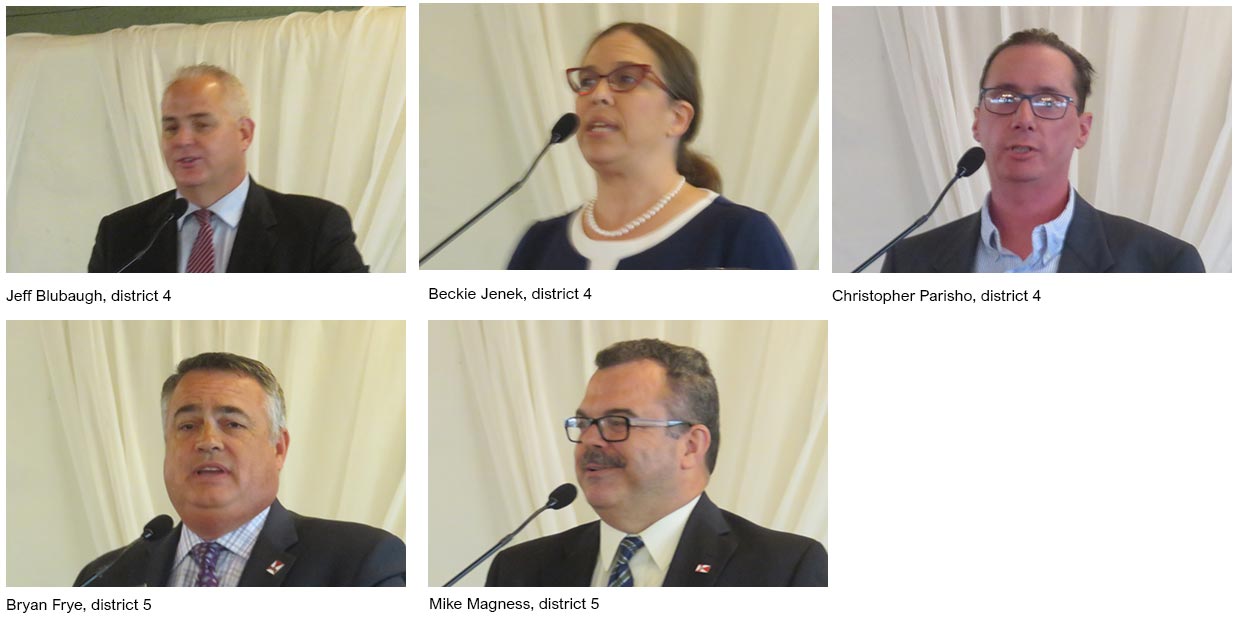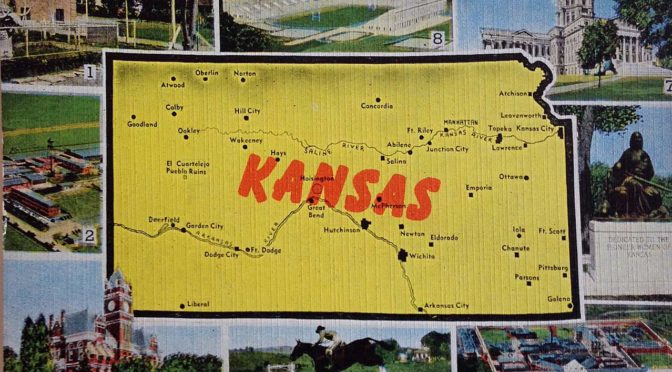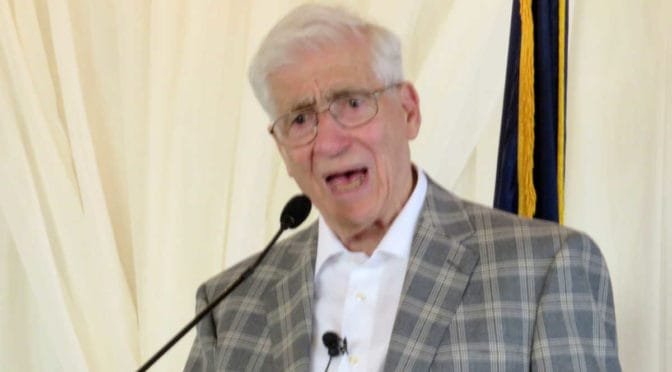Tag: Elections
-

From Pachyderm: Wichita mayoral candidates
From the Wichita Pachyderm Club this week: Wichita mayoral candidates Jeff Longwell and Brandon Whipple. This audio presentation or podcast was recorded on September 27, 2019.
-

Kansas Republicans buck longtime conservative voices
In deciding to forego a presidential caucus or primary, Kansas Republicans act contrary to mainstream conservative thought.
-

From Pachyderm: Wichita City Council Candidates
From the Wichita Pachyderm Club this week: Wichita city council candidates from districts 2 and 5. This audio presentation or podcast was recorded on September 20, 2019.
-

Wichita mayoral debate
Details of the Wichita baseball stadium land deal were an issue at the first Wichita mayoral debate.
-

Kansas Republicans should have their say
Kansas Republicans should insist on having a voice in choosing the next Republican presidential nominee.
-

Wichita mayoral primary election, August 6, 2019
Here are an interactive map and table of results of the Wichita mayoral primary election, August 6, 2019.
-

From Pachyderm: David Kensinger
From the Wichita Pachyderm Club: David Kensinger, President of Kensinger and Associates. His topic was “The Early Returns of the 2020 Presidential Election.”
-

Trump’s Bush League Challenge
If President Trump is going to exceed his presidential standing over his predecessors, he has to overcome his Bush league challenge, writes Karl Peterjohn.
-

WichitaLiberty.TV: Kansas Representative Leo Delperdang
Representative Leo Delperdang joins Bob Weeks to discuss the recent election and the upcoming session of the Kansas Legislature.
-

From Pachyderm: Professor Mel Kahn on 2018 Election Results
From the Wichita Pachyderm Club: Wichita State University Political Science Professor Mel Kahn on 2018 Election Results. This informative and entertaining presentation was recorded on November 9, 2018.
-

WichitaLiberty.TV: Bob and Karl look at election results
In this episode of WichitaLiberty.TV: Bob and Karl look at election results nationally, in Kansas, and in Sedgwick County. Episode 217, broadcast November 11, 2018.
-

The Pete Meitzner era in Wichita
Wichita City Council Member Pete Meitzner is running for a position on the Sedgwick County Commission, touting his record of economic development. Here is the record.